On Sunday, July 21, Ukrainians head to the polls to select their next parliament, known as the Verkhovna Rada. Volodymyr Zelenskiy, an actor turned politician, became president on May 20, and as Brookings experts explain, he has a long road ahead of him in a country badly in need of reform. Here are five key facts, drawn from recent Brookings analysis, about Ukraine and its upcoming legislative elections.
Their president used to play one on TV
Zelenskiy ousted incumbent Petro Poroshenko by a 50-percent margin. Notably, Zelenskiy never held political office or worked in government—he did, however, play the role of president in a popular satire show called “Servant of the People.” It’s his non-traditional background that struck a chord with voters, as Nonresident Senior Fellow Steven Pifer notes: “He ran an untraditional campaign, offering few interviews, seemingly preferring to let his TV persona shape the views of voters. The strategy worked.”
Out with old and in with the new?
In Zelenskyiy’s first month he dissolved parliament, triggering elections. His new political party, also called Servant of the People, is set to garner somewhere between 42% and 48% of the vote according to most polls, as Nonresident Fellow Molly Montgomery explains. The second most popular party, the pro-Russian Opposition Bloc, is only polling at 15% of the vote. As Montgomery also notes, if Zelenskiy’s party dominates in parliament, it will “give him the power necessary to fulfill his promises of systemic reform.”
Russia at their doorstep
Ukraine’s parliamentary elections come at a point where tensions are still high with neighboring Russia, which annexed Crimea from Ukraine in 2014 and maintains a simmering conflict in the Donbass region.
“In Ukraine’s east, continued Russian military operations in the Donbas have cost over 13,000 Ukrainian lives and displaced over 1.5 million Ukrainians since 2014. The situation in Ukraine’s Donbas is far from a frozen conflict – it is low intensity open warfare,” said Foreign Policy Fellow Alina Polyakova at a hearing of the Senate Committee on Foreign Relations’ Subcommittee On Europe And Regional Security Cooperation.
In the same hearing, Polyakova also stated: “And in a new and worrying tactic, a Russian operator confessed to being tasked with identifying Ukrainians who would be willing to ‘rent out’ their Facebook accounts for the spread of disinformation,” warning that Russia continues to meddle in Ukraine’s politics.
Corruption is still a major issue
Geopolitics aside, Ukraine also struggles with corruption and oligarchs who threaten to stymie reforms. “Ukraine remains one of the last places in Eastern Europe struggling with economic development and entrenched corruption,” says Nonresident Senior Fellow Sergey Aleksashenko. In the same piece, Aleksashenko also pointed out that although a large-scale IMF program started in 2015, it faltered due to lack of reforms and only began in 2019.
Montgomery also writes that Zelenskyiy and his party will face tough opposition from entrenched oligarchs, but must forge ahead with reforms:
He will face fierce opposition from Ukraine’s oligarchy, the tentacles of which reach deep into Ukrainian society. If he does not, the Ukrainian people will quickly recognize once again that promises of reform don’t put food on the table or money in their pockets, and they will once again become disillusioned.
A majority of Ukrainians support NATO
In May 2002, President Leonid Kuchma expressed Ukraine’s interest in joining NATO. As Pifer notes, Zelenskyiy has expressed the same sentiment. Indeed 46% of Ukrainians support joining the alliance, compared to 32% that oppose it.
But due to its proximity and current conflict with Russia, NATO membership does not appear to be on the horizon for Ukraine, as Pifer writes: “NATO membership for Ukraine is unlikely in the near term. For the foreseeable future, Ukraine should continue to deepen its practical cooperation with the alliance.”
The Brookings Institution is committed to quality, independence, and impact.
We are supported by a diverse array of funders. In line with our values and policies, each Brookings publication represents the sole views of its author(s).

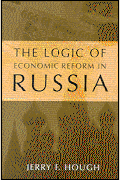
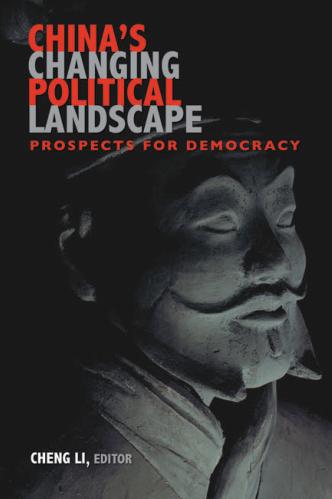
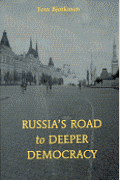
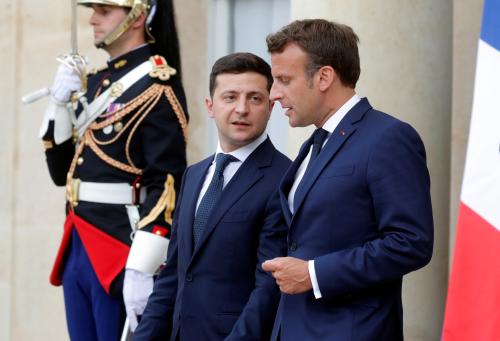
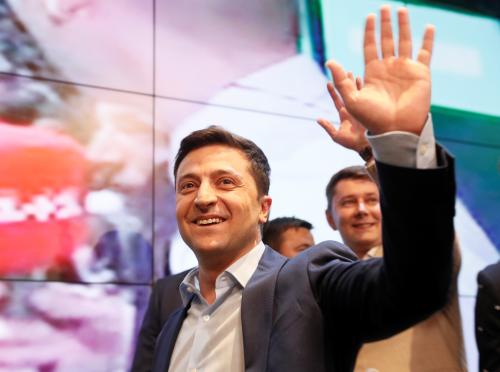
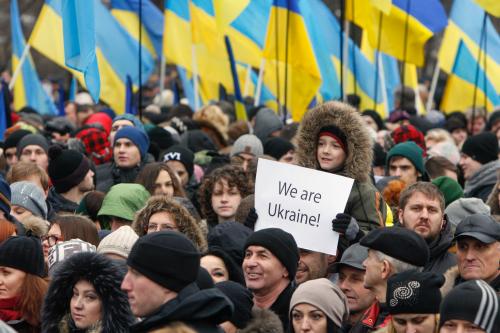



Commentary
5 things to know about Ukraine’s upcoming elections
July 19, 2019